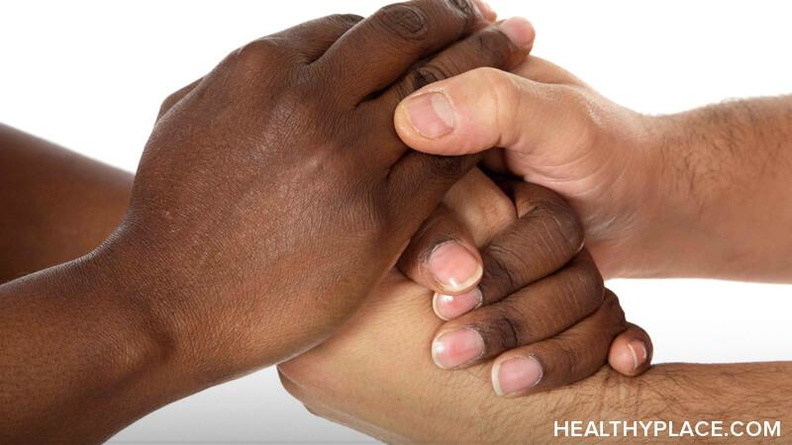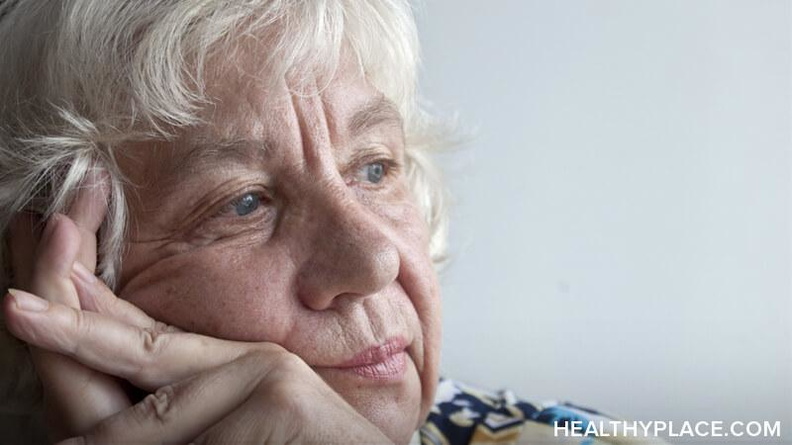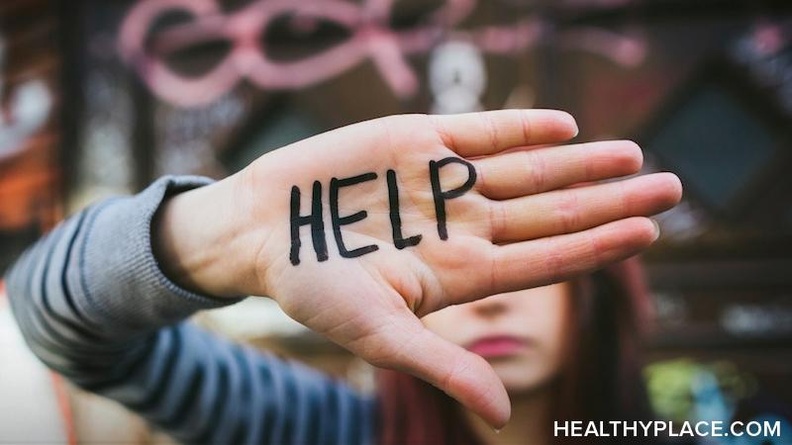Depression: Understanding Thoughts of Suicide

Insightful article on depression and understanding suicidal thoughts and feelings. If you are depressed with thoughts of suicide, here are some possible solutions.
For many years, I had suffered from depression and suicidal urges. I tried to determine why it was happening to me and what I could do to end my pain. The books I found were mostly statistical listings of who took their own life, their income brackets, and vocations. Personal accounts were specific to their situation and recounted little insight into why this was happening to me, or what I could do to end the intense pain.
I am, what some would say, mildly manic depressive and have a family history that would support such a conclusion. But, this is not my story. This is an attempt to help those who are depressed with suicidal thoughts, better understand what they are going through and help them find possible solutions.
Suicidal Thoughts Can Be a Result of the Symptoms of Depression
Most people who are suicidal are also depressed. The two prime reasons that a person becomes depressed, are a loss of control, over their life situation and of their emotions, and secondly a loss of a positive sense of their future (loss of hope). Any therapy which is to be effective in reversing our depressed state, and the resultant suicidal urges, will have to help us regain control, and help us regain hope.
Being depressed causes us to narrow our view of the world around us to such an extent that reality becomes distorted. The negative in our lives is constantly reinforced and the positive around us is discounted as being irrelevant, or even nonexistent. Options to help solve our problems are rejected as having no merit until it seems as if there is no possible solution.
An unrelenting and oppressive sadness comes over us which causes very real pain, as if the pain of the sudden loss of a parent stays with us for weeks, months, and even years. It is as if we are trapped in a dark cave or possibly a tunnel that runs only from our constant pain to somewhere near hell, with no exit to heaven and no exit to joy. We begin to think that there is no relief and that this pain will never end. Tomorrow will be the same, or worse. Death may be the only solution!
Suicide is not a solution, it is an end before a solution can be found. It cannot be considered an option, for an option denotes we have a choice and death robs us of both, option and choice. Death is an irreversible act that does not end the pain, for it remains in those who are left behind. Even people who are totally alone, and take their own lives, transfer their pain to those of us in society who do care, and we do - care!
Many people have suicidal thoughts at some time during their lives. For most the thought is fleeting, happening after a major life loss, or at some point in life where they perceive the future as becoming hopeless. For others, life is not quite so kind, they may have a strong genetic propensity to become depressed, a chemical imbalance or a series of unfortunate life experiences may eventually end in depression. Still others have much to do with causing their own pain by using an unrealistic cognitive thought process and having expectations in life that are not possible to achieve. Whatever the cause, we are all at risk of having strong suicidal urges when it seems as though the future has become hopeless.
There is no class or type of person that is exempt from having suicidal thoughts. Doctors, therapists, and teenagers from all walks of life are all high on the percentage lists of completed suicide, although it seems that those people with strong religious convictions are least likely to attempt.
Depression and Suicidal Triggers
Given a person is depressed and having suicidal thoughts, there are certain triggers which intensify the suicidal urge. Recognizing those triggers of renewed suicidal urges which are present in your life will help you to understand what is happening to you and begin to allow you more control of your emotions.
1. Beginning Therapy and After Therapy.
Suicidal urges are particularly high just after a depressed patient first enters therapy. When beginning therapy the very symptoms give rise to thoughts such as "this will never work", or "why should I put myself through this, when there is no possible hope of success". Combined with these thoughts may be the possibility that the patient and therapist do not connect or bond (as may happen between any two strangers when they first meet). The expectation that therapy will fail, especially if this is not the first attempt, is devastating. We begin to believe that if therapy fails, then we will never be rid of this pain, and what is the use of going on.
THIS IS VERY IMPORTANT! It is particularly tragic when a patient has gone through therapy and the depression has substantially lifted, that they then kill themselves. It happens! Depression is episodic, in that it can come and go, sometimes in an instant. If a person is feeling euphoric and at long last can envision themselves as depression free in the future, any setback will cause a flight back to the conditioned response of suicidal ideation.
The thought of the pain returning is unbearable and the urge to die may become intense. The triggers which cause this renewed depressive and suicidal episode are usually the same things which contributed to the depression in the first place. After therapy a continued exposure to an abusive partner, an oppressive boss, the inability to overcome substance abuse, the inadequate concept of self, financial problems, etc. can trigger renewed suicidal urges.

There is good news! These suicidal urges do not have to plunge you back into the depths of your depressive hell! This does not signify your therapy has failed or that you must then start again from square one. Recognizing those triggers or releasers of renewed suicidal urges that are present in your life will help you to understand when it happens and, that it can be reversed. The panic which follows renewed suicidal thoughts will be short lived if you do not allow this panic to take control of your mind. See your therapist, a friend, or the local crisis center. Let them help you talk it out, what you need now is - time. The feeling will pass, usually in 2 days or less!
Off in an isolated room playing a game with a young child, or alone in the back yard inspecting whatever, we hide trying to avoid any conversation which might remind us of the pain. Aunt Annabell or even a stranger might ask us if we have a job yet, or if the divorce is final, and we are slammed back into depression and suicidal thoughts. A loving relative might ask us "what's wrong" and try to bring us out of our shell. An inappropriate angry outburst might follow, giving credence to the saying that "you always hurt the ones you love". We are sorry, we depress.
2. The Antagonists.
The antagonists in our lives (the oppressive boss, the abusive spouse or partner, or that jerk who never quits) can easily trigger renewed suicidal urges. Strangers, at first meeting, soon recognize or sense that we are depressed. This may be an unconscious recognition on their part where our general demeanor, body posture, facial expressions, and attitude send signals that may cause them to react with outbursts of anger, which are not warranted, given the circumstances.
This unfair treatment of a depressed person is perplexing and gives rise to thoughts such as "life is so unfair", or "life sucks!". Some others may feel compassion for the depressed person which they are seldom able to adequately express, and they may embarrass or act inappropriately. Still others seek out depressed individuals and take advantage of the situation, all in order to boost an ego that is badly in need of repair. Take heart, as our depression lifts, and we begin to regain control of our lives and of our emotions, this treatment will pass - and it does!
3. Natural Events and Suicidal Thoughts
The effect that natural events have on depression is extremely important, especially when one is beginning to overcome the depressive response. Fast moving weather front lows, the full and new moons, changes of the seasons, and decreased sunlight in winter, will cause an increased state of anxiety when a person is depressed. One is especially at risk when there is a fast-moving weather front approaching the two days before the full moon. This must not be discounted as hearsay or superstition! Hollywood has made a mockery of the effect that the full moon may have on people.
When I mention the effect to people who have not experienced it, the same facial sneer always appears and anything I say after that is discounted as the babblings of an idiot. The fact is, that when depressed we are in a more primal state. Our emotions are raw and we are subject to natural changes in our environment and in our bodies. An increased risk can be anticipated during lows in the cycle of our biological state (such as during a woman's menstrual cycle - men have high and low monthly emotional and physical cycles also).
A statistical correlation has not been identified concerning suicidal attempts and the full moon because the full moon does not cause one to commit the act. The full moon and the other listed natural events cause an increased state of anxiety which exacerbates depression and increases the risk of the suicidal urge becoming strong. Actually, the risk of attempts of suicide is greatest during the week after the full moon, as increased depression and the resultant suicidal urges begin to take their toll.
Strong suicidal urges, mania that approaches panic (and a resultant plunge back to depression), or deepening depression that cannot be explained by a renewed life crisis, can many times be explained by looking at a calender which has the cycle of the moon marked on it! Although knowledge of what is causing this reversal does not keep it from happening, there is comfort in that one now understands what is happening and comfort that it will end in two days or less, and it does!
4. Substance Abuse and Depression
Nicotine, caffeine, alcohol, illegal drugs, obsessive overeating, and some prescription drugs, all have a detrimental effect on depressed persons. Many times the thought is that if the abuse can be overcome then the pain will end. In some cases this may be true, but what if attempts to overcome substance abuse fail? The failure may cause further depression making it difficult to even attempt subsequent withdrawal, let alone be successful. The truth is that it is possible to separate the depression from the substance abuse. Once the depression is overcome the substance abuse can be worked on from a position of strength rather than from a depressed state.
5. The Death Fantasy
During times of increased stress and trauma some may try to escape the pain of life by fantasizing that they are dead. The fantasy may begin with the thought that one has died, and the family and friends are standing at the graveside, they grieve and are very sorry we are dead. The vast number of people at the funeral attests to how much we were loved and admired. It had taken our death but we were finally able to communicate to them how unfair life had been for us and now they could take us seriously and realize that our pain was real. The "mock" attempts of suicide may be a similar form of fantasy, where the loved ones are envisioned as standing around the hospital bed and they are finally able to realize how unbearable the pain of life was for us.
If one becomes preoccupied with the death fantasy or uses it to excess in escaping from the pain of life, the fantasy will become a conditioned response in reaction to added stress or crises. Death can become a friendly thought and one may begin to fear the pain of life more than they fear death.
6. Bipolar Disorder: A Manic Crash and Burn
The bipolar, manic depressive person (one who alternates between periods of manic euphoria and a depressed state) should be extra careful to identify those triggers which may cause a reversal of mood. Some people seem to be able to control their manic periods, others cannot. Even those who outwardly seem to be in control are at risk if they have a reversal of fortune, and their sometimes unrealistic endeavors turn sour. The mood swing can be swift, unexpected, and dangerous. In an instant we can be slammed back into a depressed state with strong suicidal urges.
Our View of the Future
The human conscious mind is the only entity on the face of this planet which is able to conceptualize and abstract the future. The need for a positive sense of the future is one of the prime motivators of human life. This need transcends even the event of our ultimate demise and is the motivation to envision a continuation of life after death. We do not want to think that death is the end. Heaven, and life after death with God fulfills this need for the religious person, others have envisioned reincarnation, or that we enter (body whole) into another dimension without the need to believe in God. For others, the legacy of their works or the continuation of their genes through their offspring is enough to give them a positive sense that death is not a complete end.
In the short-term, and for those who do not concern themselves with what happens after we die, there is still the need for a positive sense of our future. It is what makes us get up in the morning and face the coming day. Even in the face of adversity or drudgery, we are motivated to endure, because we envision an end to these conditions and a better future at some later date. The anticipation of future events is what makes our body ready itself for the sex act, it is what motivates us to amass wealth and power, to buy a lotto ticket, to set goals and have aspirations.
Even the diehard sofa potato looks to the future as told to him by the upcoming programs in the television listings, and of course there is that next thirst quenching beer and resultant belch, to look forward to. We all have a need for something to look forward to, if we lose all hope that the future holds anything positive or that our present pain will ever end, most of us will depress.
Conclusion
Knowing what is happening to us goes a long way in being able to regain control over our lives and our emotions. But real healing will not be possible until the depression is lifted. I recommend that anyone who is depressed and having suicidal thoughts seek help. There are drugs which may help to maintain a depression-free life, and therapy is needed to help us better understand why we became depressed and what we need to do in order to live our life in control of our emotions.
This manuscript was conceived while I sat on a ledge overlooking the abyss of hell. I would contemplate if I should follow the intense urge to jump and end it all, or if I could muster the strength to take control of my emotions and of my life. I tried so very hard to picture the future - with me in it. I hope that relating the knowledge I have gained from my experience and my pain might somehow help ease your pain. Knowing what is happening to you and some of the reasons why it is happening might help you regain a positive view of your future, a view that includes both, you and me.
APA Reference
Staff, H.
(2022, January 10). Depression: Understanding Thoughts of Suicide, HealthyPlace. Retrieved
on 2025, November 8 from https://www.healthyplace.com/depression/articles/depression-understanding-thoughts-of-suicide









